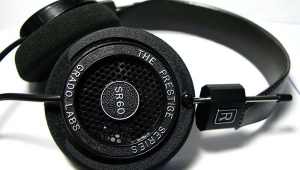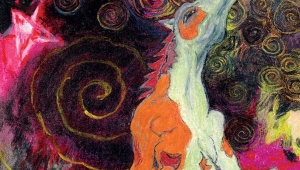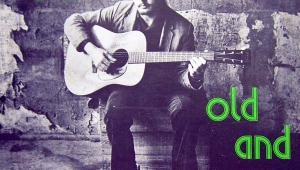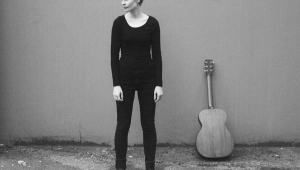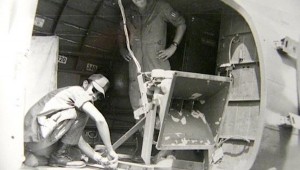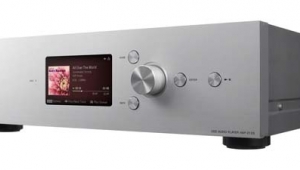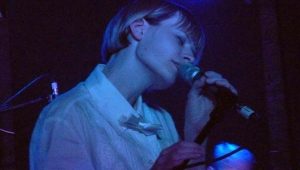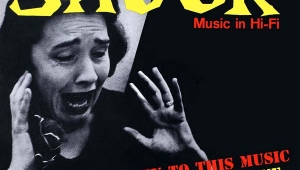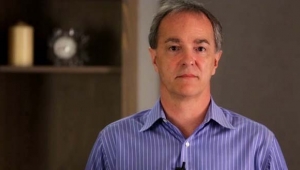| Columns Retired Columns & Blogs |
Masaki Batoh: Brain Pulse Music
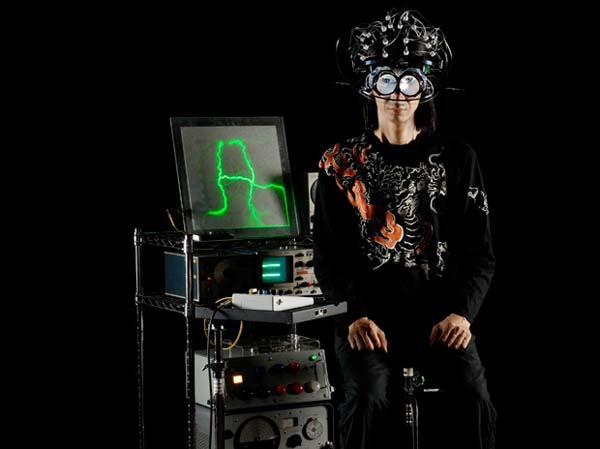
Masaki Batoh’s Brain Pulse Music, available today from Drag City, is “a collection of seven prayers and requiems to the victims of the Great East Japan Earthquake.”
The album utilizes Batoh’s Brain Pulse Music (BPM) machine, a wildly futuristic device partnered with headgear, goggles, and a motherboard, said to be developed and built by MKC, Inc. The BPM machine, editions of which will also be available for sale from Drag City, monitors brain waves and transmits them via radio waves to the motherboard, which, in turn, converts the radio waves into pulses that are then outputted as sound.
Sounds kooky, but also wonderful. I think of it as a sort of a brain-activated theremin.
By controlling one’s mental condition, one can manipulate sound without having to hold a musical instrument, though this requires training to a certain extent. Not everyone will be able to control the sound to their satisfaction on their first attempt. Through a state of total relaxation, or by reaching a state of “anatta” (not-self), the machine captures the microscopic fluctuation of brain waves. The "awakening" that emerges from a relaxed mental state becomes an important key to this program.
The story behind the album gets deeper: Batoh’s original concept was to create music extracted from brainwaves. But when the earthquake struck on March 11, 2011, blackouts and radioactive contamination from the Fukushima Daiichi nuclear plant forced Batoh to temporarily evacuate Tokyo and postpone the recording.
Batoh eventually returned and commenced his work at his acupuncture clinic, and he began noticing that many of his patients complained of mental instability and anxiety following the disaster. With his family still in evacuation as he concentrated on treating his patients, the concept of this album slowly began to come into focus. What was initially to be an austere demonstration of experimental bio-electric procedures was fully realized as part of Batoh's ongoing effort to use electronic and musical processes to reconcile the spirit and the body.
Throughout the album, dense and often disturbing BPM pieces are set aside quieter, spacious pieces using traditional Japanese folk instruments. The latter reflect religious melodies Batoh heard in his youth. The contrast between the two forms is startling; the effect is illuminating and, oddly, soothing. This is rich, challenging music, but it is also rewarding, fascinating, and often as beautiful as it is frightening. Brain Pulse Music strikes me as one of the more important records we’ll hear this year. And, yes, I do find satisfaction in contributing to a good cause.
All proceeds from the sale of Masaki Batoh’s Brain Pulse Music will benefit Red Cross Japan and the victims of the Great East Japan Earthquake.
- Log in or register to post comments



